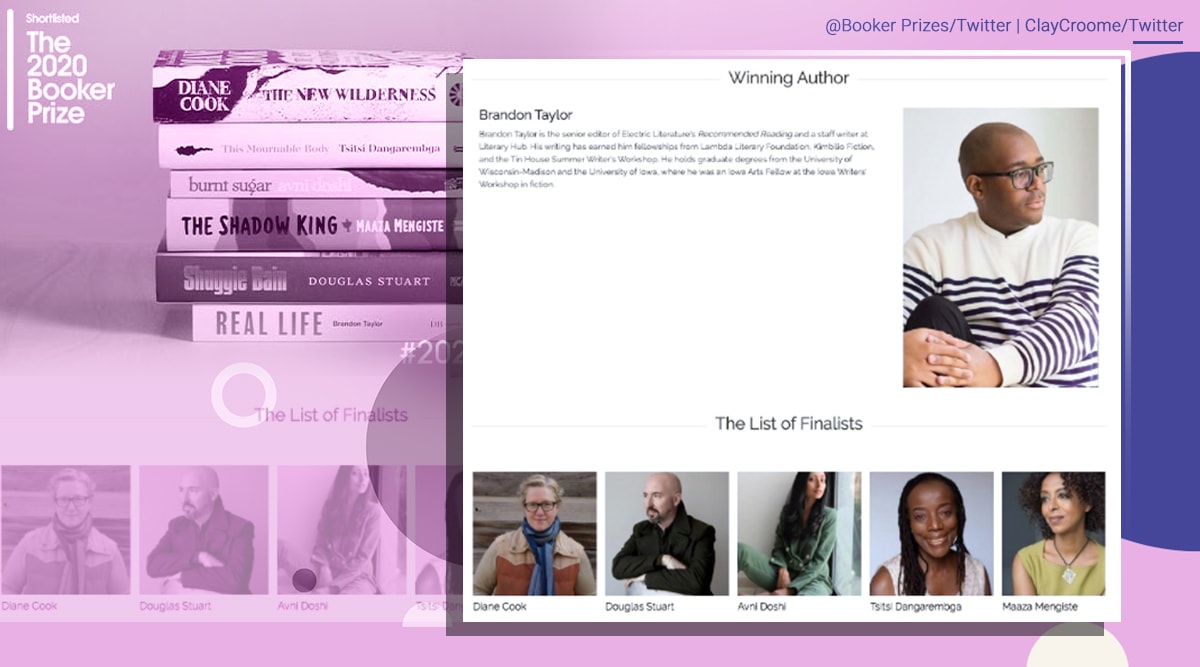
Instead, he and his partner, on Zoom at home in pandemic-hit New York, ordered pizza and unearthed an “ancient” bottle of champagne. There was no banquet for Douglas Stuart, who won last November’s prize for his debut, Shuggie Bain. Margaret Atwood, left, and Bernardine Evaristo, joint winners of the 2019 Booker prize. Evaristo has become, one publisher told me, “the interviewee, the interviewer, the chair of this, the face of that”. “Suddenly I was given a certain kind of gravitas, and respect and authority,” she said. The first Black woman to win, she found herself in demand to speak out politically. Then came the prize, and, at 60, with her eighth novel, “everything that I could have wished for my career happened to me overnight”: stage rights and film rights sold 50 translations on the way a BBC Imagine documentary. Before the Booker she had never been able to make a living purely from her fiction. When we spoke in the summer, it was, possibly, Portuguese publication day, though she’d lost track. Bernardine Evaristo, who won jointly with Margaret Atwood in 2019, is, two years on, still busy with press interviews. Hilary Mantel’s Wolf Hall was already a bestseller when it won in 2009 even so, she told me, “You feel your status change overnight”. It remains transformative for its winner. The prize today is worth £50,000 and a guaranteed surge in sales. “You could divide my literary life in that walk.” When Ben Okri heard his name announced a decade later, at a banquet at Guildhall in London, “I got up, walked slowly, in a dreamlike way, past all these tables and made my way across,” he told me.

(In the early days this was “an Oscar-type thing”, as an internal memo referred to it: a vaguely art-deco, female figure holding aloft a shallow dish, more than half a metre tall.) “It made it possible for me to live by my work, which I have done ever since,” Rushdie told me. In the thrusting Thatcher years, competitions – as well as competition – were all the rage.įrom Rushdie’s victory onwards, life has changed dramatically for most of the authors who have won the prize. In 1982, an enterprising new bookshop chain called Waterstones was founded, and two years later, the Turner prize was established as the Booker for art. Penguin’s canny new boss, Peter Mayer, had snapped up the paperback rights to most of the 1980 shortlist, and rushed them out with a Booker slash on the cover – making buying, reading and having an opinion about “Booker books” affordable and attractive. The prize was becoming part of a bolder, bigger and more competitive spirit in publishing, and British culture more generally. The cameras swivelled towards the 34-year-old Salman Rushdie (8-1), until recently an ad man at Ogilvy and Mather, who picked up a cheque for £10,000 and instant fame. It was by such steps that the Booker became not just a book prize, but a heady tangle of arguments, controversy and speculation: a cultural institution.Īt 7.37pm, the winner’s name was announced. “I was somewhat dismayed to find that purposive, often very misleading, leaking was going on,” Hilary Mantel, a judge in 1990, told me. Over Goff’s 34 years in charge, many more semi-accurate snippets from the judging room were let slip. The prize’s administrator, Martyn Goff, leaked the story, and Burgess’s literary flounce made for gleeful headlines. The year before, Anthony Burgess had demanded to know the result in advance, saying he would refuse to attend if William Golding had won – which he had.
#BOOKER PRIZE 2021 TV#
It was the year BBC began regular live TV coverage of the Booker prize, which was as fundamental to its fame, through the great era of terrestrial television, as the carefully encouraged scandals that regularly detonated around it. The seating plan had been kept flexible in case Italo Calvino declared himself available at the last moment.

(Back in 1975, there had been la tortue verte en tasse (green turtle soup), a dish from another age altogether.) Among the guests were prominent figures, then and now, of London’s cultural scene: Joan Bakewell, Alan Yentob, Claire Tomalin. The menu’s vaguely fashionable ingredients (avocado!) announced the year’s prize as at least tentatively modern. Dinner was mousse of avocado and spiced mushrooms, goujons of sole, breast of pheasant Souvaroff, black cherry pancake and hazelnut bombe. J ust after 7.20pm on 20 October 1981, the 100 or so guests for the Booker prize ceremony sat down under the oak panelling of the Stationers’ Hall in the City of London.


 0 kommentar(er)
0 kommentar(er)
